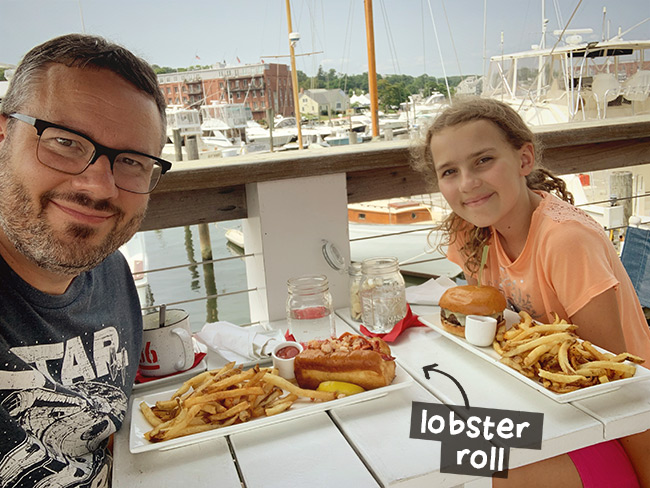
Eating lobster used to be a punishment reserved for prisoners.
I was reminded of this during a recent trip to New England. I had a speaking engagement in Connecticut, and took my oldest daughter with me. I had three different lobster dishes on the trip (in between samplings of clam chowd-ah).
The fact that the inclusion of lobster makes any dish more expensive is quite a turn of events from its humble beginnings. A few hundred years ago, lobster was plentiful, washing up on shore by the hundreds. The so-called “cockroach of the sea” was eaten only by the poor and prisoners, who considered it cruel and unusual punishment. It was commonly used as livestock feed and fertilizer. Said essayist John J. Rowan in 1876, “Lobster shells about a house are looked upon as signs of poverty and degradation.”
But in the late 19th century, canning became a viable way to get food rations to soldiers in the Civil War. Enterprising railway companies rebranded the lobster as an exotic dish to travelers in fine dining cars far from the coast. Soon, fresh lobster became more desirous. The newfound popularity increased demand, reducing supply and driving prices higher.
That’s how lobster went from prison food to pricey delicacy.
It’s also an example of how changing the way you see changes everything.
A more modern, crustacean-free example comes via an email I received from a reader named Melissa. She and her family have been going through a turbulent time, between unexpected repairs popping up in their vehicles, to some unwanted pests taking up residence in their home. It’s been stressful, to say the least. She wrote:
“What I learned by watching my husband’s example, was to intentionally have fun in the midst of all this. I’ve been saying YES to more little requests than usual in order to combat the stress: yes, let’s get ice cream; yes let’s go to the park; yes let’s play with water balloons; yes let’s go on that unplanned weekend away with the cousins; yes, we can bake cookies again. I think my children may think having pests in the house has been one of funnest times of their childhood… and thinking back on this time I wonder if I will remember the pests or only the fun we had.”
I think we all know the answer to that.
You can’t wish away stress or prevent difficult challenges from invading your everyday, but you can control how you frame it. Melissa and her husband reframed their trials into treasured memories for their kids.
This ability to reframe is not some Pollyanna technique for making you feel good. As the examples above demonstrate, It can literally create money out of thin air and produce happiness from frustration.
This is the entire premise of my new book, A Chance of Awesome: How Changing the Way You See Changes Everything. If you’d like to get better at this skill, you might want to pick up a copy for yourself.
The important thing is to keep in mind that if you’re looking for a new way to grow your business, solve a tricky puzzle, or overcome a hardship, you might want to try looking at it from a different perspective.
[…] Por Jason. Leia o artigo completo em Fugindo da Idade Adulta. […]